Maria Xenochristou
TabGLM: Tabular Graph Language Model for Learning Transferable Representations Through Multi-Modal Consistency Minimization
Feb 26, 2025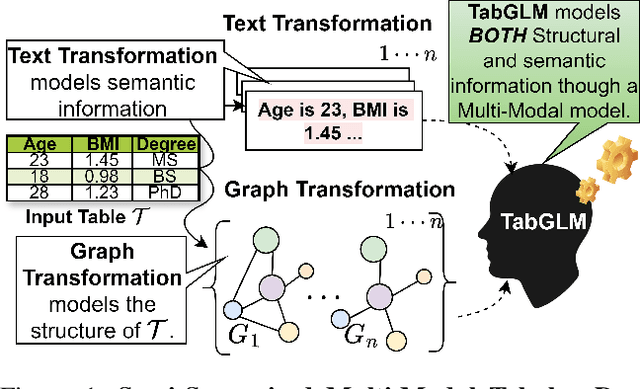
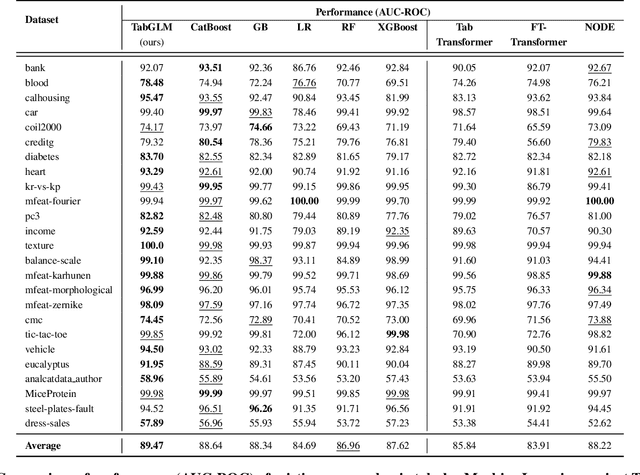

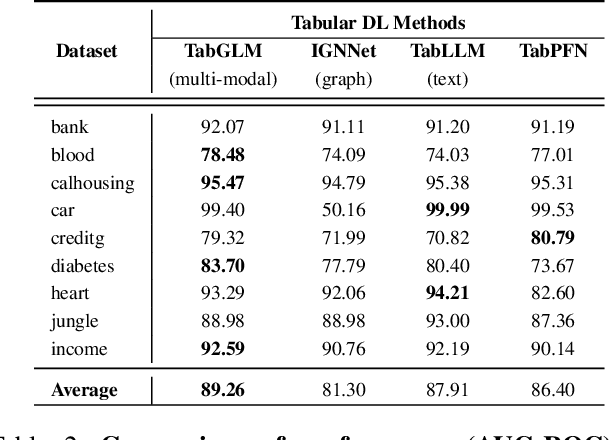
Abstract:Handling heterogeneous data in tabular datasets poses a significant challenge for deep learning models. While attention-based architectures and self-supervised learning have achieved notable success, their application to tabular data remains less effective over linear and tree based models. Although several breakthroughs have been achieved by models which transform tables into uni-modal transformations like image, language and graph, these models often underperform in the presence of feature heterogeneity. To address this gap, we introduce TabGLM (Tabular Graph Language Model), a novel multi-modal architecture designed to model both structural and semantic information from a table. TabGLM transforms each row of a table into a fully connected graph and serialized text, which are then encoded using a graph neural network (GNN) and a text encoder, respectively. By aligning these representations through a joint, multi-modal, self-supervised learning objective, TabGLM leverages complementary information from both modalities, thereby enhancing feature learning. TabGLM's flexible graph-text pipeline efficiently processes heterogeneous datasets with significantly fewer parameters over existing Deep Learning approaches. Evaluations across 25 benchmark datasets demonstrate substantial performance gains, with TabGLM achieving an average AUC-ROC improvement of up to 5.56% over State-of-the-Art (SoTA) tabular learning methods.
NeMo: 3D Neural Motion Fields from Multiple Video Instances of the Same Action
Dec 28, 2022Abstract:The task of reconstructing 3D human motion has wideranging applications. The gold standard Motion capture (MoCap) systems are accurate but inaccessible to the general public due to their cost, hardware and space constraints. In contrast, monocular human mesh recovery (HMR) methods are much more accessible than MoCap as they take single-view videos as inputs. Replacing the multi-view Mo- Cap systems with a monocular HMR method would break the current barriers to collecting accurate 3D motion thus making exciting applications like motion analysis and motiondriven animation accessible to the general public. However, performance of existing HMR methods degrade when the video contains challenging and dynamic motion that is not in existing MoCap datasets used for training. This reduces its appeal as dynamic motion is frequently the target in 3D motion recovery in the aforementioned applications. Our study aims to bridge the gap between monocular HMR and multi-view MoCap systems by leveraging information shared across multiple video instances of the same action. We introduce the Neural Motion (NeMo) field. It is optimized to represent the underlying 3D motions across a set of videos of the same action. Empirically, we show that NeMo can recover 3D motion in sports using videos from the Penn Action dataset, where NeMo outperforms existing HMR methods in terms of 2D keypoint detection. To further validate NeMo using 3D metrics, we collected a small MoCap dataset mimicking actions in Penn Action,and show that NeMo achieves better 3D reconstruction compared to various baselines.
MedPerf: Open Benchmarking Platform for Medical Artificial Intelligence using Federated Evaluation
Oct 08, 2021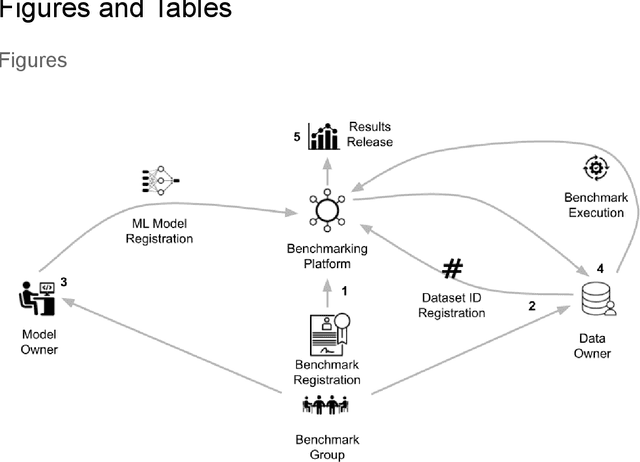
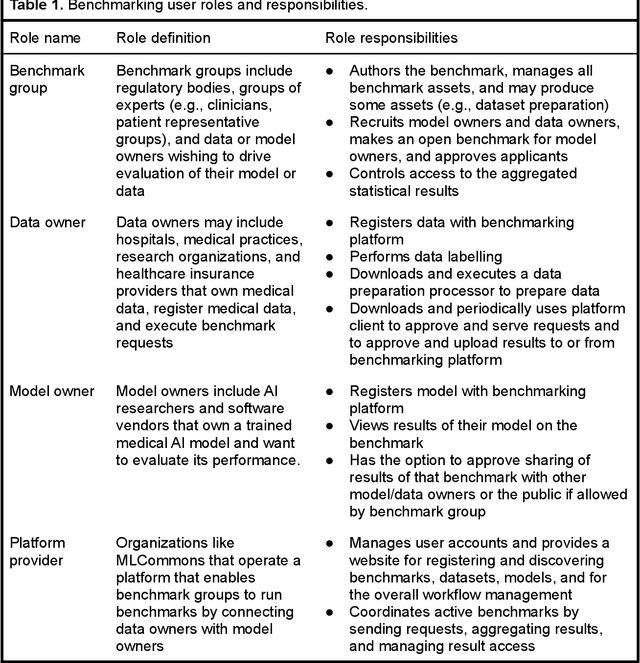
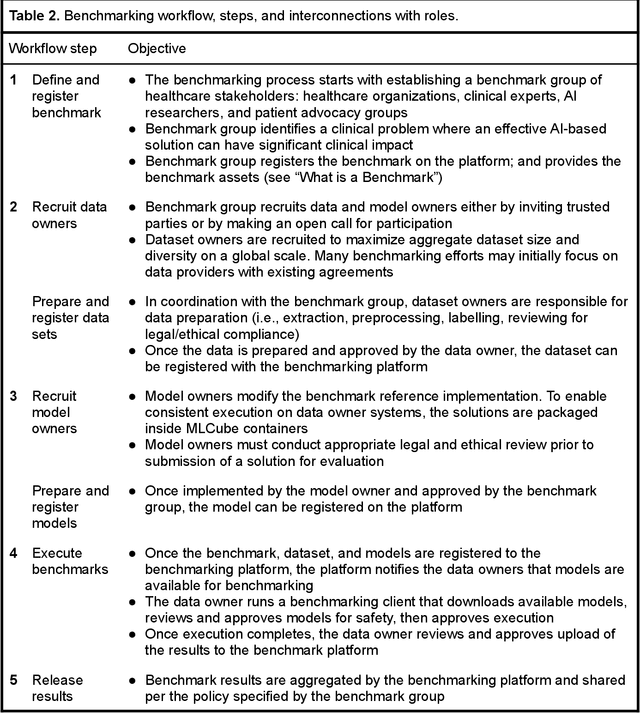
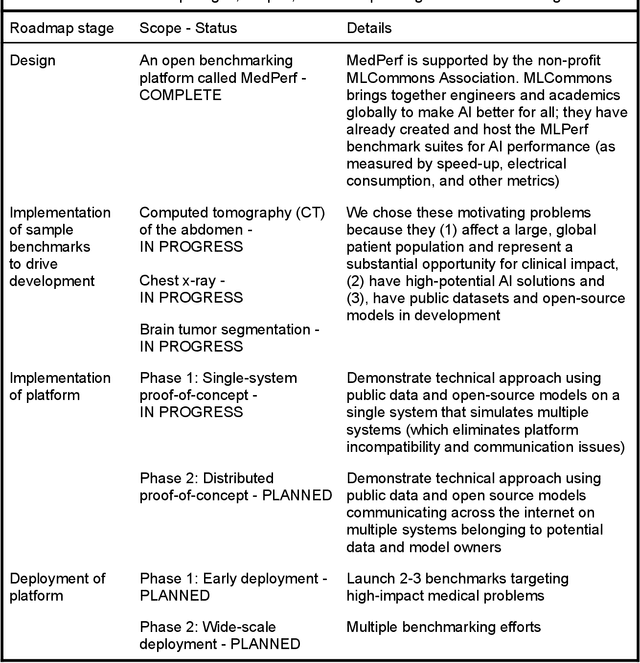
Abstract:Medical AI has tremendous potential to advance healthcare by supporting the evidence-based practice of medicine, personalizing patient treatment, reducing costs, and improving provider and patient experience. We argue that unlocking this potential requires a systematic way to measure the performance of medical AI models on large-scale heterogeneous data. To meet this need, we are building MedPerf, an open framework for benchmarking machine learning in the medical domain. MedPerf will enable federated evaluation in which models are securely distributed to different facilities for evaluation, thereby empowering healthcare organizations to assess and verify the performance of AI models in an efficient and human-supervised process, while prioritizing privacy. We describe the current challenges healthcare and AI communities face, the need for an open platform, the design philosophy of MedPerf, its current implementation status, and our roadmap. We call for researchers and organizations to join us in creating the MedPerf open benchmarking platform.
 Add to Chrome
Add to Chrome Add to Firefox
Add to Firefox Add to Edge
Add to Edge